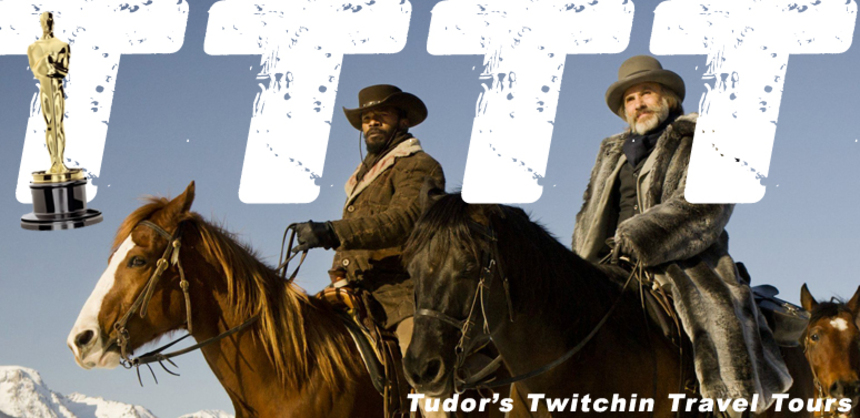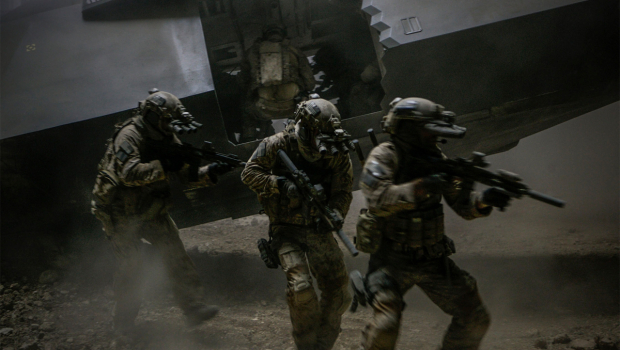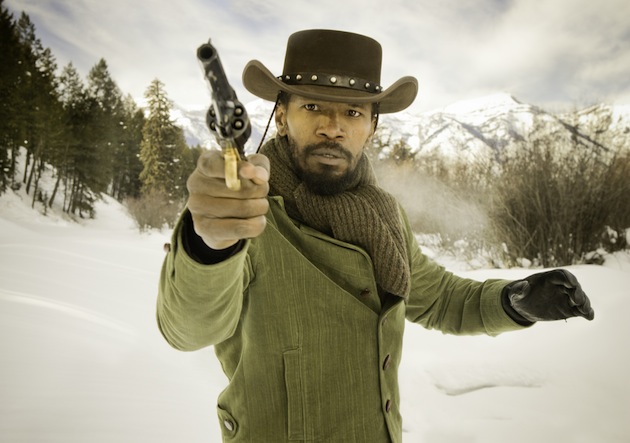Oscar Rundown: ZERO DARK THIRTY, DJANGO UNCHAINED, LINCOLN

Most any seasoned film fan has at one time or another come to experience the annual Oscar race in varying parts exciting, perilous, exhausting, fun, and dismissible.
If you're at all like me, your attention to this annual ritual (and attention WILL be paid, even in dismissiveness) is both rife with legitimate excitement and anticipation - a cinephile's longing for quality to be recognized by a broader audience (however fleeting their gaze) - and a horse race gambler's obsessions, laying the odds on every category.
Ultimately, the true value and worth of what's come to be known as Film Awards Season (spanning roughly from early December with the first critics groups awards through Oscar night) lies not in the here and now (unless you're one of those people who watches these shows for the fashions) but Janus-like, in a simultaneous past and future gaze. Like it or not, the Oscars are both a defined cultural barometer and an indicator of what the immediate future of movies may look like. But for the moment, even as we work to repress the ugly politics, transparent campaigning, and predictability of it all, some enthusiasm should be had at the notion of films such Amour and Beasts of the Southern Wild being served up to the Entertainment Tonight crowd (I love that the syndicated TV show has to talk about these films!) and beyond.
This year's Oscar contenders, at first glance, look like an admirably diverse batch. We have the usual pre-destined Oscar-bait (Les Misérables, Lincoln), a crop of edgier of-the-moment pulse-pounders (Zero Dark Thirty, Argo), a few satisfying auteur efforts (Django Unchained, Silver Linings Playbook, Amour), and even a few visually overpowering entries (Life of Pi, Beasts of the Southern Wild). All, except one (Les Misérables), are more than deserving of their place on the list.
Thanks to deadline changes in nominating and voting (both made slightly earlier, as to not trail too far behind all the predecessor awards), the categories are more gloriously wonky than they've been in years. (Argo is a Best Picture front-runner, but director Affleck got zero love in that category -- a rare occurrence.) This lends a refreshing unpredictability to the whole thing, even as certain inevitabilities become clearer and clearer the closer we get. (Amour for Best Foreign Language Picture has been a lock from the start, and Daniel Day-Lewis' winning is looking like the way the Academy may choose to honor not just the actor and the film Lincoln, but the sixteenth president himself.) (You know they're thinking it, the self-important lot.)
But are the nine Best Picture nominees really that big of an unrelated jumble? Closer inspection reveals certain through lines linking most if not all of these films, sometimes in unlikely ways. Let's take a look at three of them, and see how well the dots connect.
Zero Dark Thirty
(This capsule review, and the others that follow, are portions of full reviews previously posted at my own site, ZekeFilm.org.)
 Director Kathryn Bigelow's chronicle of the recent hunt and eventual killing of most-wanted terrorist Osama Bin Laden is an epic of immediacy. Detailing events only a couple years passed, the utter recentness of what's being depicted results in an almost mental motion blur. Spanning a decade, Zero Dark Thirty opens with 9/11 - graphically heard but not seen, then the fog of CIA torture, then a rabid pursuit of intel - and then before you know it, it's whirring chopper blades for Seal Team Six. It's as though a usual assembled crew of union technicians didn't make the film, but rather some sort of consciously minded detached strike force.
Director Kathryn Bigelow's chronicle of the recent hunt and eventual killing of most-wanted terrorist Osama Bin Laden is an epic of immediacy. Detailing events only a couple years passed, the utter recentness of what's being depicted results in an almost mental motion blur. Spanning a decade, Zero Dark Thirty opens with 9/11 - graphically heard but not seen, then the fog of CIA torture, then a rabid pursuit of intel - and then before you know it, it's whirring chopper blades for Seal Team Six. It's as though a usual assembled crew of union technicians didn't make the film, but rather some sort of consciously minded detached strike force.
Jessica Chastain leads an otherwise ensemble cast as a CIA torturer who goes on to become obsessed with taking down bin Laden. Her blind drive for justice is at once commendable and scary, wrought with patriotism, honor, and bloodlust. In short, she is an effective and murky micro chasm of how so many Americans (myself included) felt in the years following September 11, 2001.
The film gives us nothing to cheer about. It won't say that torture is unnecessary, but it won't say it's proper either. It won't say that revenge is right, but it won't condemn it either. If you want politics, best look elsewhere. Bigelow gives just the facts as she sees them, albeit on an epic American filmmaking canvas - a workspace conventionally wrought with more flaws than the U.S. government itself. More so than most any other filmmaker working today, Bigelow stands in the gap, actualizing the classic analogy paralleling large-scale filmmaking and intensely strategized military operations. She does the job without reserve or outward emotion, questioning unquestioningly. Zero Dark Thirty is a pulsing film of the moment, and will be remembered as such. It may not be perfect (and maybe that's the point?) but it may be Kathryn Bigelow's masterpiece.
Zero Dark Thirty offers up an uneasy concoction of vulnerable, national soul-searching, throwing recent notions of American patriotism into question. It manages to remain detached in its historic view, all painfully researched and presented as FACT. It's a "process film" that has no need for humanizing the foreign "other" that resides blurry in the protagonist's obsessive gun sights. Amid all of this, it remains a personal film, a director's statement through and through.
A flip-nut cinema anachronism such as Quentin Tarantino's Django Unchained might seem to resemble Bigelow's epic in only the most limited of ways, but a closer compare and contrast is in order, which follows my capsulated take on the film:
Django Unchained
With Django Unchained, Tarantino now turns his attention to the Deep South, shortly before the Civil War. True to its spaghetti Western sub-genre, Django Unchained is rife with murky justice and loners living by their own code. In classic American movie terms, straightforward Howard Hawks-ian "men on a mission" horsepower is what fuels it. But less true to the genre is the landscape itself -- an essential element in any Western.
 As the newly freed slave Django (Jamie Foxx, doing real well what he hired to do: Look cool) and his bounty hunter/dentist associate Dr. Schultz (Christoph Waltz, giving life to yet another unforgettable Tarantino character, this one 180 degrees removed from Col. Hans Landa) travel from one town to another, leaving a bloodied trail of bodies in their wake, it's not John Ford's Monument Valley or even the dusty cattle drive terrain like that of Red River that informs their function and purpose. Rather, it's ornate plantation cotton fields and tree after tree loaded with kudzu, "the weed that ate the South." Grindhouse level blaxploitation (a controversially proud legacy in African American cinema) fuses with the American Western and the Spaghetti Western by way of Sam Peckinpah for something uniquely Tarantino: A subversion of form, yes, but also a wholehearted embracing. Django Unchained is at once a Western, and (as it's been labeled so often already) a "Southern."
As the newly freed slave Django (Jamie Foxx, doing real well what he hired to do: Look cool) and his bounty hunter/dentist associate Dr. Schultz (Christoph Waltz, giving life to yet another unforgettable Tarantino character, this one 180 degrees removed from Col. Hans Landa) travel from one town to another, leaving a bloodied trail of bodies in their wake, it's not John Ford's Monument Valley or even the dusty cattle drive terrain like that of Red River that informs their function and purpose. Rather, it's ornate plantation cotton fields and tree after tree loaded with kudzu, "the weed that ate the South." Grindhouse level blaxploitation (a controversially proud legacy in African American cinema) fuses with the American Western and the Spaghetti Western by way of Sam Peckinpah for something uniquely Tarantino: A subversion of form, yes, but also a wholehearted embracing. Django Unchained is at once a Western, and (as it's been labeled so often already) a "Southern."
And, like the foreign, omnipresent kudzu weed, the inhumane institution of slavery is the thematic infestation here. Can it ever truly be exterminated from these parts? Pity anyone who attempts to stop these protagonists from trying. Avenging this great historic wrong -- or at least offering a 150-year late catharsis -- is a major part of this film's mission de jour.
Thankfully, in real life, things did change in regard to slavery, and when they did, it wasn't via Peckinpah-style plantation shootouts, but ultimately, by humane legislation. A war had to happen, and emancipation came only as a sidebar in the grand scheme. So it is as well with Django and Schultz -- things must get messy before they get better (even if a larger betterment is the result of a personal mission). And since they happen to be movie characters occupying a movie, these things will go down in movie fashion. And our box office is one fueled by aggression. But perhaps, just maybe, violent revisionist fantasies such as this one can serve as deliberate gaze forcing sidesteps in our own internal grappling with our national past sins, as well as our own troubled hearts that make for such a situation in the first place. And such consideration is indeed he a healthy thing ... in between the gunfire.
Unlike Zero Dark Thirty, Django Unchained offers little in the way of patriotic evocation. In stark contrast, Tarantino's tale is dripping with moral absolutism, going as far as appropriating history itself to do so. It takes what was once a social "other" -- black slaves in America -- and forges a hero. But where ZDT must suffer allegations of historical revisionism and inaccuracies (some degree of which must be there, really), Django Unchained downright wallows in those things. Both arrive at their resolutions through the barrels of guns.
Steven Spielberg's lofty Lincoln also culminates with a fateful burst of gunfire, albeit one that plays only slightly into the film's true mission. The scourge of slavery is again at the center of one of this year's most talked about films, although this one depicts the problem- solving in purely historic terms.
Lincoln
It's 1865, and the Civil War is raging on (and on... and on...), and President Abraham Lincoln has become quietly convinced of the moral imperative inherent in ending slavery. He must do everything he can to end the war, but if he ends slavery first, the odds of the southern states willingly re-uniting with the north decrease considerably. This is a catch-22 of almost incomprehensible magnitude -- one of the biggest and most soul wringing in all of U.S. history -- riding heavily on the shoulders of one increasingly frail man. We all know the outcome, but that makes this depiction no less electric. The film nails it -- by the end, when the political votes are being counted, the effective storytelling tension stands on par with Spielberg's most harrowing adventure film sequences.
 This is an impressive film, not just for its restraint from Spielberg's usual visual stylizations, but for its slow-burn intensity, engulfing the viewer in the searing passions and political mechanizations that were so intricately tethered to the issue of abolition in America. Although the film effectively is scene after scene of people talking in rooms, there are no bad scenes, no fat to be trimmed. Lincoln strikes the proper and difficult balance of being both a winning character drama and an engaging political process film. The fact that we're witnessing a highly plausible version of 1865 politics -- a time when history actually was being written with lightning (sorry D.W. Griffith) -- is almost gravy.
This is an impressive film, not just for its restraint from Spielberg's usual visual stylizations, but for its slow-burn intensity, engulfing the viewer in the searing passions and political mechanizations that were so intricately tethered to the issue of abolition in America. Although the film effectively is scene after scene of people talking in rooms, there are no bad scenes, no fat to be trimmed. Lincoln strikes the proper and difficult balance of being both a winning character drama and an engaging political process film. The fact that we're witnessing a highly plausible version of 1865 politics -- a time when history actually was being written with lightning (sorry D.W. Griffith) -- is almost gravy.
The parallels of Lincoln's 1865 nation divided and America's situation today are not altogether unlike the Civil War trauma of Lincolns's time. May we pray that we NEVER arrive to that place again.
As Lincoln opened shortly following the 2012 U.S. presidential election, red state denizens desired a clean break from the "hippie collectivists," while likewise, many blue state die-hards were perfectly willing to say "good riddance" to those people. But the fact that America CAN be different yet united is essential, and THAT is what we must work to hold on to, even as definitive conclusions MUST be reached. Like the politics Lincoln grapples with, our politicians today must also command and concede through a sea of negotiation, compromise and standing one's ground. Stand back and squint at Lincoln's conundrums of 1865, and we'll see that today's problems, while considerable, don't quite measure up... yet. In this sense, Lincoln may be a warning for us to heed.
Granted, the slavery connection makes the Django Unchained / Lincoln comparison an obvious one, if not an always easy one. Like Zero Dark Thirty, Lincoln is intensely process driven, while still very much being a soul-searching character piece. The enslaved "other" is a sympathetic, looming specter kept at arm's length, more than a bona fide human presence. But like Bigelow's film of the here and now, Spielberg's is searingly internal amid its "factual" veneer.
For all the difference and contrasts these three films demand, each is wholly worthy of acclaim, Osacr and otherwise. They stand as transformative, reflective entertainment of the here-and-now that will most certainly withstand the test of time.







